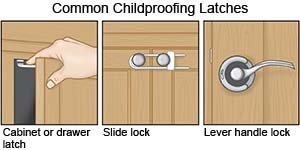Barbiturate Use Disorder
Medically reviewed by Drugs.com. Last updated on Aug 4, 2025.
What is barbiturate use disorder?
Barbiturate use disorder is a medical condition that develops from long-term misuse of a barbiturate. You are not able to stop even though the misuse causes physical or social problems. Barbiturate use disorder is also called barbiturate abuse.
What are the signs and symptoms of barbiturate use disorder?
Signs and symptoms include at least 2 of the following in a 12-month period:
- You take the barbiturate in a way it was not intended. This is also called misuse. For example, your prescription is for anxiety relief, but you take it to feel good instead. You take more than prescribed or for longer than recommended. Misuse can also mean you take the barbiturate even though you do not have a prescription for it.
- You have a strong urge or craving for the barbiturate. This is also called addiction. You are not able to control when you take it or how much you take. You spend large amounts of time trying to get, take, or recover from the barbiturate. In between doses, you think about when you will get to take it again.
- You become dependent on the barbiturate. Dependence means your body becomes used to the barbiturate. You have withdrawal symptoms when you do not take the medicine for a short amount of time. You have to take it to stop or prevent withdrawal symptoms, such as shaky hands.
- You become tolerant to the barbiturate. This means the amount you have been taking no longer has the effects you want. You need higher amounts to feel the effects.
- You are not able to decrease or stop taking the barbiturate. You start again when you try to quit or take a lower amount.
- You keep taking the barbiturate even though it causes problems or is dangerous. For example, you drive after you take the barbiturate. You try to make the effect stronger by drinking alcohol or taking other drugs with it. You have problems at school, work, or home. You spend less time doing important or enjoyable activities.
How is barbiturate use disorder diagnosed and treated?
Your healthcare provider will ask when you take barbiturates, and how much you take. Blood or urine tests may be used to check the level of barbiturates in your system. The tests can also check for physical problems barbiturates can cause. Healthcare providers can help you make decisions about treatment programs. Treatment may be offered in a hospital, outpatient facility, or drug rehabilitation center. The goal is to help you decrease or stop taking the barbiturate.
- A detox program includes medicine and treatment to reduce withdrawal symptoms and anxiety when you stop taking barbiturates. You will be in the hospital with close monitoring and care.
- Your dose will be gradually decreased by your healthcare provider to help prevent withdrawal symptoms.
- Cognitive behavioral therapy (CBT) can help you manage depression and anxiety caused by barbiturate use disorder. CBT can be done with you and a talk therapist or in a group with others.
- Motivational enhancement therapy can help you set and reach healthy, positive goals.
- Twelve-step facilitation (TSF) is a short, structured approach to reach early recovery. It is done one-to-one with a therapist in 12 to 15 sessions.
What do I need to know about barbiturate safety?
- Do not mix barbiturates with medicines, drugs, or alcohol. The combination can cause an overdose, or cause you to stop breathing.
- Learn about the signs of an overdose so you know how to respond. Tell others about these signs so they will know what to do if needed.
- Keep barbiturates out of the reach of children. Store them in a locked cabinet or in a location that children cannot get to.

Where can I find support and more information?
- Substance Abuse and Mental Health Services Administration (SAMHSA)
PO Box 2345
Rockville , MD 20847-2345
Web Address: http://www.samhsa.gov or https://dpt2.samhsa.gov/treatment/
- National Institute on Drug Abuse
6001 Executive Boulevard, Room 5213
Bethesda , MD 20892-9561
Phone: 1- 301 - 443-1124
Web Address: www.nida.nih.gov
Call your local emergency number (911 in the US) or have someone call if:
- You have chest pain or breathing problems.
- You feel like hurting or killing yourself or someone else.
- You have a seizure.
When should I seek immediate care?
- You faint.
- You have hallucinations.
When should I call my doctor?
- You have questions or concerns about your condition or care.
Care Agreement
You have the right to help plan your care. Learn about your health condition and how it may be treated. Discuss treatment options with your healthcare providers to decide what care you want to receive. You always have the right to refuse treatment. The above information is an educational aid only. It is not intended as medical advice for individual conditions or treatments. Talk to your doctor, nurse or pharmacist before following any medical regimen to see if it is safe and effective for you.© Copyright Merative 2025 Information is for End User's use only and may not be sold, redistributed or otherwise used for commercial purposes.
Learn more about Barbiturate Use Disorder
- Bath Salts Drug
- Can a Drug Test Lead to a False Positive?
- Cannabis: Uses, Effects and Safety
- Cocaine
- Devil's Breath: Urban Legend or the World's Most Scary Drug?
- Drug and Substance Abuse
- Ecstasy
- GHB or Gamma-Hydroxybutyrate
- Hashish
- Heroin
- Ketamine Abuse
Treatment options
Care guides
Further information
Always consult your healthcare provider to ensure the information displayed on this page applies to your personal circumstances.
